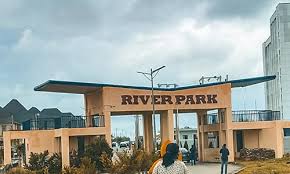A High Court sitting in the Federal Capital Territory has ordered all parties involved in the ownership dispute over River Park Estate in Abuja to maintain the status quo, pending the final resolution of the case.
The judge gave the order during a hearing on a suit filed by Jonah Capital Nigeria Limited, which is contesting the alleged encroachment and control of the estate. The court specifically warned the third and fourth defendants not to interfere with the disputed land until the matter is concluded.
“This court hereby directs that all parties, especially the 3rd and 4th defendants, maintain the status quo pending the final determination of this suit,” the judge ruled. The case was adjourned to October 27 for further hearing.
The court also approved a request by Jonah Capital’s counsel to amend the name of the first defendant to reflect the Registered Trustees of Dunamis International Church, replacing an earlier misidentification.
Outside the courtroom, the claimant’s legal representative explained, “This amendment aligns with legal procedure and ensures that the correct party is named in the dispute.”

Meanwhile, Dunamis Church, listed among the defendants, denied encroaching on any property, stating that the land it occupies was lawfully allocated. “We have not violated any boundary,” the church’s lawyer said. “The court’s order to maintain the status quo has been in place since January, and we are in full compliance.”
The dispute over River Park Estate, a large residential development off Abuja’s Airport Road, has triggered parallel criminal investigations. Police have charged three Ghanaians—Sam Jonah, Kojo Ansah, and Victor Quainoo—alongside Nigerian lawyer Abu Arome and Mobus Property Nigeria Ltd. for allegedly forging documents and unlawfully assuming control of the estate’s managing firms.
According to the charges, the suspects manipulated corporate records to allocate 99 million shares to themselves using falsified documents and forged signatures, aiming to seize over 500 hectares of land.
“The defendants misrepresented themselves as Nigerian citizens and submitted forged documents to the Corporate Affairs Commission,” said prosecution counsel, who emphasized the gravity of the offenses.
The case, which intertwines civil claims and criminal charges, continues to draw attention amid concerns over land fraud and property rights in Nigeria’s capital.



